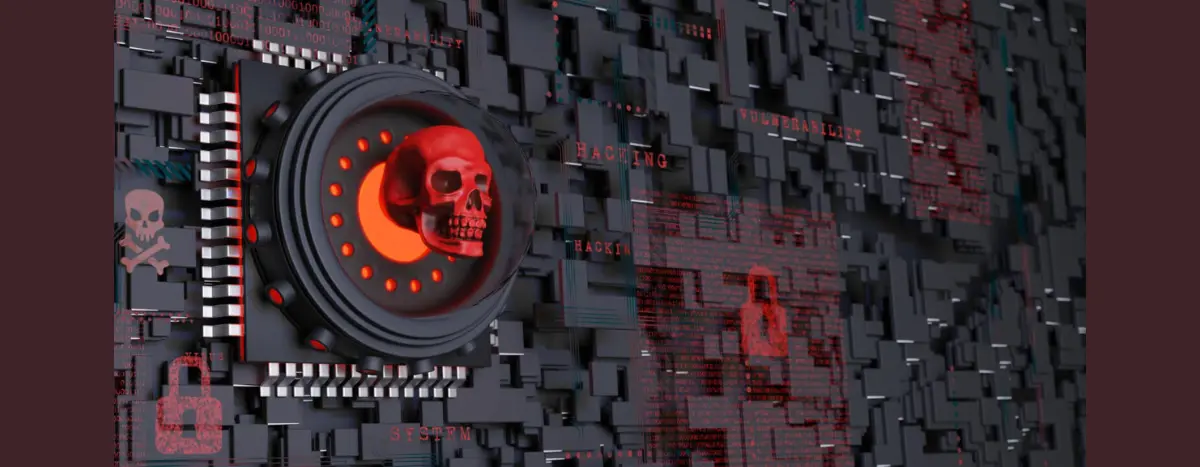- Introduction
- Evolution of MBA Finance
- Future Scope of MBA Finance in India
- Potential Threat for MBA Finance
- How IILM is Shaping the Future MBA Grads
- Summerizing
When it comes to finance, India is growing! While other tier 1 countries are facing recession and financial slowdown and are reporting 0 or even -ve growth rates India to report a whopping 7% of the growth in our GDP. This tells a very different story and explains that all our efforts like ‘Make in India’, promoting entrepreneurship, supporting indigenous production, etc. have resulted in positive changes.
This financial acceleration has made a huge vacuum for finance graduates. With increasing legal reforms and RBI’s regulations on businesses and common people, the market is demanding more and more employees who can help them out with managing their money and investments which resulted in more opportunities for MBA Finance Grads. Along with just that there are many other factors that decide whether a career in MBA finance will be bright or dark.
In this blog post, we will discuss the future of doing an MBA in Finance and what scope it holds for the people pursuing this degree. Will also conclude whether pursuing this degree will be the right option or not. So stick till the end!
Evolution of MBA Finance:

“To identify the future of something it’s important to trace back its past.”
The history of MBA Finance can be traced back to the early 20th century when business schools began offering courses in finance as part of their curriculum. Over time, there have been significant changes in the content and structure of MBA Finance programs to cater to the evolving needs of the finance industry.
– The Old School MBA Finance:
In the traditional periods, Finance would look like a bunch of people manually calculating the ROI’s of all the asset allocations and storing its physical file in a safe locker. Unlike today when we have hardcore techs like blockchain, crypto wallets, UPI, digital trading platforms, and whatnot. As businesses became more complex and the financial markets underwent transformative changes, the demand for professionals well-versed in finance grew exponentially.
– Curriculum Changes in MBA Finance:
The curriculum of MBA Finance programs has adapted to reflect the changing dynamics of the finance industry. Initially, the focus was primarily on traditional financial concepts such as valuation, capital structure, and financial markets. However, with the advent of technology and the increasing integration of finance with other business functions, the curriculum has expanded to include subjects like data analytics, fintech, and strategic financial planning.
– Technological Advancements in MBA Finance:
Technological advancements have had a profound effect on the field of MBA Finance. Automation, artificial intelligence, and machine learning have revolutionized various aspects of financial analysis, risk assessment, and investment decision-making. MBA Finance programs have adapted to equip students with the necessary skills to navigate these technological advancements and leverage them for strategic advantage.
Future Scope of MBA Finance in India:

It will be a great option to pursue MBA in Finance as India’s economy is rapidly expanding, creating a growing demand for skilled financial experts. Pursuing an MBA in Finance can open up a range of opportunities in various industries. Here are some reasons why pursuing an MBA in Finance in India has a promising future:
1. Growing Demand: As businesses expand and diversify, there is an increasing need for professionals with strong financial knowledge and business acumen. An MBA in Finance equips individuals with the necessary skills to meet this demand.
2. Career Advancement: An MBA in Finance enhances career prospects by providing a comprehensive understanding of financial management, investment analysis, risk assessment, and strategic decision-making. It opens up senior management positions like CFO, Financial Analyst, Investment Banker, Portfolio Manager, or Financial Consultant.
3. Thriving Financial Sector: India’s financial sector is experiencing substantial growth due to economic reforms, increased foreign investments, and technological advancements. This growth translates into a rising demand for finance professionals, particularly those with an MBA in Finance.
4. Entrepreneurship and Startups: With the rise of startups and entrepreneurial ventures in India, individuals with an MBA in Finance are leveraging their skills to establish their own ventures or contribute to the growth of startups. The finance-focused curriculum helps entrepreneurs develop financial strategies and make informed decisions.
5. Global Opportunities: An MBA in Finance opens doors to global career opportunities. With India’s integration into the global market, multinational corporations and financial institutions seek finance professionals with a global perspective. Indian companies expanding abroad also provide opportunities for finance professionals to work in foreign markets.
Long story short, pursuing an MBA in Finance in India offers a bright future. The growing demand for financial experts, the thriving financial sector, career advancement opportunities, the rise of entrepreneurship, and global job prospects make it an excellent choice for individuals aspiring to build successful careers in finance.
Potential Threats for MBA Finance:

We’ve already talked a lot about the positive side of this career now let’s talk about the flip side of the coin. It’s not all green and upside path the MBA finance may face some resistance that can dampen its growth rate, here’re are a few factors that might be a threat to MBA finance and the one pursuing it must stay aware of:
– The Growth of AI:
Rapid advancements in technology, particularly in artificial intelligence and automation, have the potential to disrupt traditional finance roles. Some laborious parts of the tasks such as data analysis, risk assessment, and portfolio management can increasingly be automated, reducing the demand for certain finance positions. To stay relevant, finance professionals will need to adapt, upskill, and focus on areas that require human judgment and strategic thinking.
– Ethical and Regulatory Challenges:
The finance industry has faced scrutiny due to ethical breaches and regulatory violations in the past. As a result, there is an increased focus on transparency, accountability, and ethical practices. Professionals with an MBA in Finance must be well-versed in compliance and ethical standards to maintain the trust and confidence of stakeholders.
– Evolving Skills and Knowledge Requirements:
The field of finance is continuously evolving, driven by new technologies, financial instruments, and changing business models. Professionals need to stay updated with emerging trends, enhance their analytical skills, and develop expertise in areas such as data analytics, sustainable finance, and digital finance. As the skill that you’ve learned today, may go outdated tomorrow so, lifelong learning and continuous professional development are crucial to remaining relevant in the dynamic finance industry.
How IILM University is Shaping the Future MBA Finance Grads:

The IILM Business School is tirelessly preparing MBA Finance professionals for the challenges and opportunities that lie ahead.
Enhancing the MBA Finance Curriculum
IILM regularly updates and enhances the MBA Finance curriculum to align with emerging trends, technological advancements, and changing industry requirements. This includes incorporating subjects such as fintech, sustainable finance, and data analytics to equip students with the requisite knowledge and skills.
Encouraging Interdisciplinary Approaches
The finance industry is increasingly interdisciplinary, requiring professionals to collaborate with experts from other fields. To enable our students to perform well we follow an interdisciplinary approach by offering joint programs with other disciplines such as technology, data science, and sustainability.
Fostering Industry Partnerships and Internships
Business schools should establish strong partnerships with industry leaders and offer internships and experiential learning opportunities to MBA Finance students. These partnerships provide students with real-world exposure, access to industry networks, and practical experience that enhances their employability.
Summerizing: Should you pursue MBA in Finance:

If you are looking for certainty then you should forget the dream of achieving anything greater in your life. As everything valuable will definitely involve drastic changes and in such an uncertain period of the AI revolution, Industry 4.0, etc. nothing is certain. But one thing is for sure, if you have the ability to adapt the change and eagerness to learn continuously you can achieve success in any industry.
Deciding whether to pursue an MBA in Finance requires careful consideration. First, evaluate if your career goals align with finance-related roles. Consider if the knowledge and skills gained through an MBA in Finance are crucial for your desired career path. Additionally, assess if an MBA in Finance will enhance your existing skill set and contribute significantly to your professional growth.
Networking opportunities are an important aspect of an MBA program. Consider the value of building a strong network for career advancement and accessing job opportunities. Evaluate the financial investment required for an MBA program, including tuition fees, living expenses, and the potential return on investment. Reflect on your ability to balance work, family, and academic responsibilities, as pursuing an MBA requires a significant commitment of time and energy.
Lastly, explore alternative pathways to achieving your career goals in finance. Assess if other certifications, specialized courses, or on-the-job experiences can provide the necessary knowledge and skills. By carefully considering these factors, you can make an informed decision about whether pursuing an MBA in Finance is the right choice for you.
Recently Produced:

MBA Finance Scope – 2023 | The Future of MBA Finance

MBA 2.0 | How A.I. is Transforming the MBA in 2023

7 Tips to Get a high-paying Job After MBA – The 1% Formula

Exploring Opportunities with B.Tech in Food Technology

Transform Spaces, Transform Lives: Embrace the Thriving Career Opportunities in Interior Designing

The Impact of Technology on Modern Business Management

B-Tech is Dead? Should you consider persuing B-tech in 2023

Tech Giants Laying off! 5 AI-proof Skills Students can Learn

7 Highest Paying Jobs after Doing B.Tech in Biotechnology

B.Tech in Mechatronics Engineering, Salary, Scope, Fee – 2023





